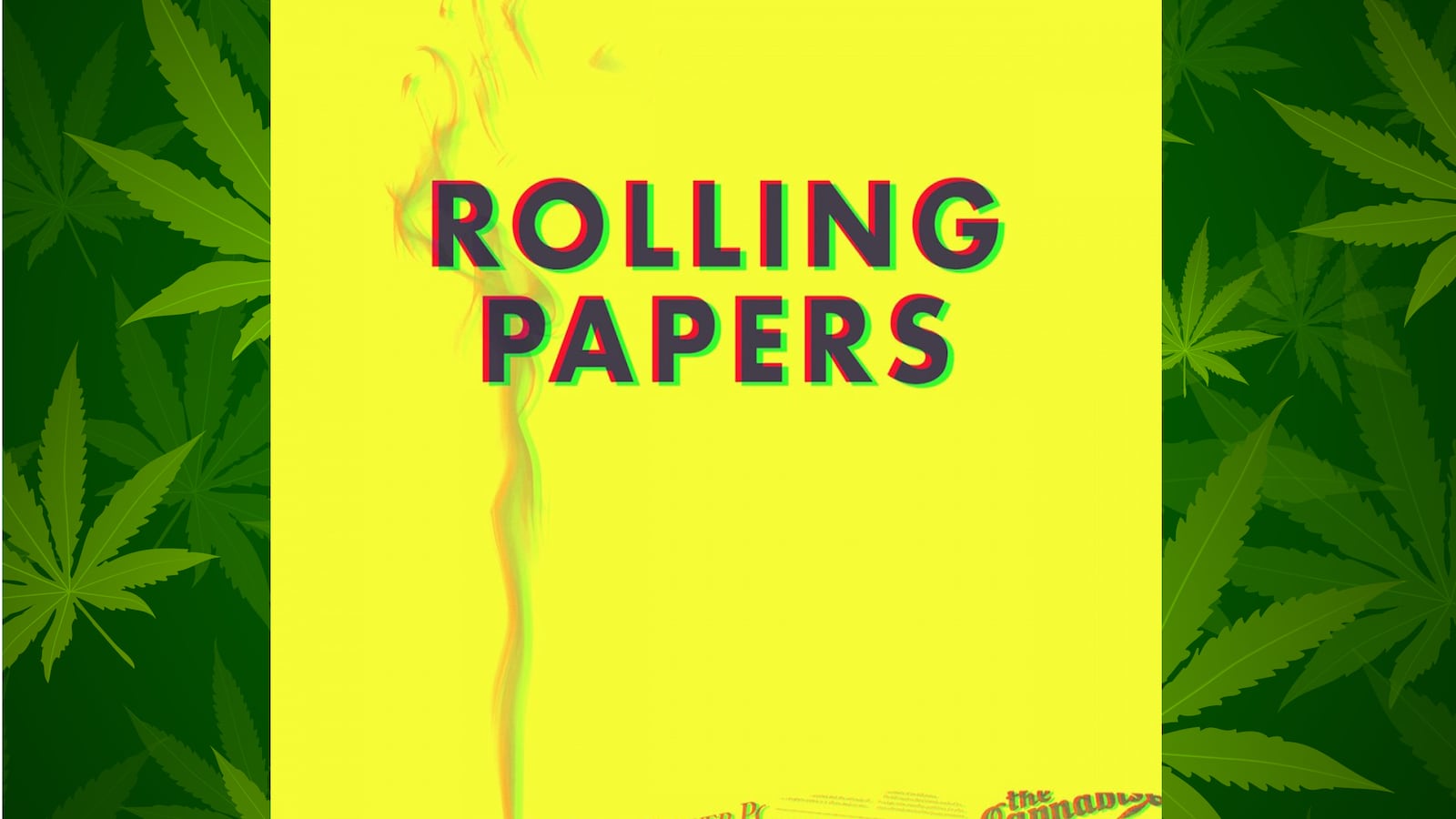Rolling Papers is nominally about what, to many, probably sounds like the best job in the world: Marijuana Editor at The Denver Post. That coveted position was bestowed on affable former music critic and entertainment editor Ricardo Baca in 2014 to coincide with the state’s legalization of pot. Unsurprisingly, it instantly made him something of a celebrity, with appearances on daily talk shows including The View, whose co-host Whoopi Goldberg was so impressed by his—and his fellow Post staffers’—work that she agreed to become a columnist for the paper’s online hub for all things weed-related, The Cannabist.
Baca’s job is the buzzy hook of Mitch Dickman’s documentary. However, the film’s far more pressing concern is the way in which Baca and his colleagues sought to report—in true, investigative-journalism fashion—on Colorado’s groundbreaking new socio-cultural-political paradigm over the course of legalized weed’s first calendar year. And moreover, to do so in a media landscape in which it’s grown increasingly difficult for newspapers to thrive—thus making marijuana coverage a key avenue for print publications such as The Denver Post to remain both relevant and financially viable in a web-dominated world.
If that sounds a little heavy, not to worry—Rolling Papers is a reasonably lighthearted stoner affair, one that seeks to understand the challenges of trying to figure out this hazy new environment, all while exuding genuine excitement about the fact that, well, there’s a lot of pretty tasty bud now available for purchase at your local Colorado store. Director Dickman regularly punctuates discussions about certain pot strains with insert shots of said buds on a rotating, purple-haired pedestal set to jokey music, thereby capturing both the gourmet nature of this burgeoning commodity, as well as the thrilling absurdity (or absurd thrill) of pot finally being treated like an acceptable, decadent indulgence.
Rolling Papers is on the stoners’ side. Yet Dickman is far less interested in merely celebrating the smokable than in detailing how Baca, his straight-laced reporter comrades John Ingold and Eric Gorski, his de facto expert Ry Prichard, and his newly hired critics Jake Browne and Brittany Driver—the latter a mother of a 2 1/2 year-old writing a controversial pot-and-parenting column—cover this new beat. Colorado’s decision to legalize resulted in numerous governmental and private-industry issues. As Baca exposes in his first large-scale piece for The Cannabist, those include the issue of how edibles (i.e. food products containing THC) are tested, produced, and marketed—a problem that comes to the forefront thanks to a retail outfit known as Dr. J’s which, Baca soon learns, is selling items containing only a fraction of the marijuana content it claims on its labels.
If the push-pull between regulation and free-market forces is an ubiquitous dynamic in Rolling Papers, so too is the contentiousness between federal and state laws. That schism has left Colorado’s Child Protective Services somewhere in the middle, and thus has made parents of young children who openly smoke pot—such as The Cannabist’s Driver—more than a bit paranoid about the ramifications of her professional (and personal) habits. The idea that Driver could, in a worst case scenario, lose her child because she’s partaking in legal behavior—as well as behavior necessitated by her very job—suggests that Colorado hasn’t quite comprehended and devised solutions for the myriad scenarios spawned by its legalization movement. Without clear answers, it’s resulted in a population at once free to smoke pot whenever it likes and yet still restrained by ignorance over exactly how this groundbreaking system actually works and how it will be enforced going forward.
As evidenced by a panel attended by many of The Cannabist’s contributors, Colorado—-circa 2014—couldn’t predict what legalization would bring, in part because it barely even knew the answers to its own questions about the medical effects of the drug on adults, and the potential impact its availability would have on children. Consequently, Rolling Papers functions as a portrait of a state barreling headfirst into uncharted territory, hoping that it will be capable of managing unforeseen crises as they emerge, and praying that the decriminalization of a formerly illicit substance won’t result in the sort of violence that was seen at a 2013 “4/20” celebration, where a gang shooting disrupted an otherwise peaceful gathering of tens of thousands of potheads.
Ry’s efforts on various photography and competitive-pot projects, all while high, offer a unique view on perpetual marijuana use’s impact on personal and professional spaces. And Baca’s eventual trip to Uruguay to examine their state-mandated legalization plan—which, unlike Colorado’s free market, involves the government selling dirt-cheap weed that smells like piss in all pharmacies—further underlines how no one quite knows what a legal-pot future (if there is one at all) will ultimately resemble. The fact that different nations are undertaking a grand marijuana experiment, however, is no more fascinating an aspect of Rolling Papers than is a snapshot of the transformation of the media. Setting their sights on numerous points of interest, from the medical benefits of CBD (another marijuana-based compound) to the way legalization is impacting the black market, Baca and his team reveal the still-vital role that real investigative journalism continues to play in the 21st century. Furthermore, their work suggests a promising means by which old-school newspapers can utilize new-school online methods to continue to provide the public with the sort of serious reportage that constantly developing stories such as this demand.
In other words, it’s a simultaneously amusing and incisive panoramic portrait of our ever-developing New Weed Order.





